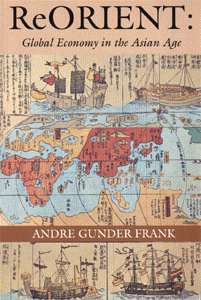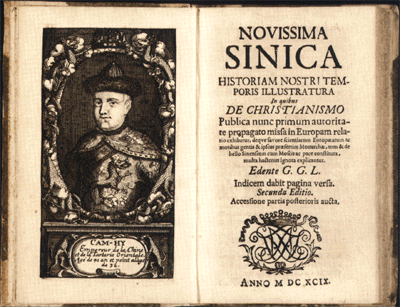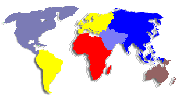|

 Andre Gunder Frank Andre Gunder Frank
Asian Economy
until appx 1763
Money Went Around the World and Made the World
Go Round (from reOrient)
“But why and how did this money
make the world go round? Why did anybody—indeed everybody!—want this money so much as to drive up its price, and in Asia and especially in China to keep the money that arrived from
elsewhere? Because people and companies and governments there were able to use money to buy other commodities, including precious metals such as gold and
silver. ... No less and no more than anywhere else, either then or today. That is, the money supported and generated effective demand, and the demand elicited supply. Of course, additional demand could only
elicit additional supply where and when it could. That is, there had to be productive capacity and/or the possibility to expand it through investment and improved productivity.”
“The argument here is that that expansion was possible and did happen, especially in many parts of Asia. Otherwise, the Asians would not have demanded and bought the additional foreign and domestic money
either by supplying commodities or other money for it. If supplies of commodities had not been able to expand, any increased demand for them would just have driven up the price of existing commodities
through what is called inflation—and/or there would not have been demand to import this additional new money in the first place! That is,
the new silver and copper money, not to mention the additional credit it supported, increasingly monetized and stimulated production in the
world, regional, "national," and many local "economies," that is in these parts of the single global economy. ... The combination of these
arguments here supports my thesis that there was only one world economy/system and that it had its own structure and dynamic. Money played an important part during the period of global development from
1400 to 1800. Money went around the world and made the world go round in this global casino in which it supplied and vastly increased the lifeblood that fueled and oiled the wheels of agriculture, industry, and
commerce.”
China in the world economy
China lays down the Gauntlet
in Energy War
By F. William Engdahl
The Making of a China-EU World
By David Gosset 
Australia and The Rise of China as
A Function of American
Post-Industrial Decay 
By James Cumes
Russia in eurasia
Color Revolutions, Geopolitics
and the Baku Pipeline
By F William Engdahl, 27 June, 2005
HANDS ACROSS THE STRAIT
For the first time in more than 50 years of estrangement from the Chinese Communist Party, Taiwan's Kuomintang has sent a delegation
to mainland China. In Asia Times Online Henry C K Liu examines the history behind the move. 
The Myth of Tiananmen And the Price of a Passive Press 
Before the Next Catastrophe
By Uri Avnery, 01.01.05  / Deutsch / Deutsch 
REDUCING DISASTER RISK
A CHALLENGE FOR DEVELOPMENT
Natural disasters exert an enormous toll on development. In doing so, they pose a significant threat to prospects for achieving the Millennium Development Goals in particular, the overarching target of halving
extreme poverty by 2015. Annual economic losses associated with such disasters averaged US$ 75.5 billion in the 1960s, US$ 138.4 billion in the 1970s, US$ 213.9 billion in the 1980s and US$ 659.9 billion in the
1990s. The majority of these losses are concentrated in the developed world and fail to adequately capture the impact of the disaster on the
poor who often bear the greatest cost in terms of lives and livelihoods, and rebuilding their shattered communities and infrastructure. Today, 85 percent of the people exposed to earthquakes, tropical cyclones,
floods and droughts live in countries having either medium or low human development. more
United Nations Development Program
has begun development of a Disaster Risk Index (DRI) 
Waiting for the next Tsunami
“A large, wider Europe, driven into hegemonic rivalry by the present
hyperpower play by the United States, is a somber scenario.”
Arno Tausch, Speaking Freely, in Asia Times Online 
Die endlose Türkei-Debatte
Ein Dossier von Arno Tausch 
Die Türkei, die islamische Welt und die Zukunft Europas. Ein Lehrstück zur US-Außenpolitik im 21. Jahrhundert
Von Arno Tausch 
Jahrbuch 2002
Gottfried Wilhelm Leibniz
Prof. Hans Poser: Bericht über den VII. Internationalen Leibniz Kongreß 

Novissima Sinica
Historiam nostri temporis illustratura 
Das Neuste von China
Zur Erhellung der Geschichte unserer Zeit 
Zur Relevanz der Novissima Sinica 
Vorwort 1979 
Redaktionelle Bemerkung 
Leibniz und Russland
Begegnungen zwischen Leibniz und Peter dem Großen 
China und der Rest der Welt / Verein für Geschichte des Weltsystems 
Glasfaserseidenstraße Deutschland - China 
Jahrbuch 2000
Orient und Okzident in Weimar
»In der Welt des Menschen
gibt es kein absolutes Anderssein« 
De Ludo Globi 
Die Rede des iranischen Präsidenten Mohammed Khatami in Weimar am 12.7.2000 
Toscanellis Brief über den westlichen Weg 
 Weltwirtschaft im Weltwirtschaft im
asiatischen
Zeitalter 
Global Economy in
the Asian Age 
Ein Gegenentwurf zur Analyse der letzten zwei Jahrhunderte eurozentrischer Geschichtsschreibung und Gesellschaftstheorie ...
Weltwirtschaft und ihre sektorale und regionale Arbeitsteilung und zyklische Dynamik von 1400 bis 1800.

|

 Andre Gunder Frank
Andre Gunder Frank
